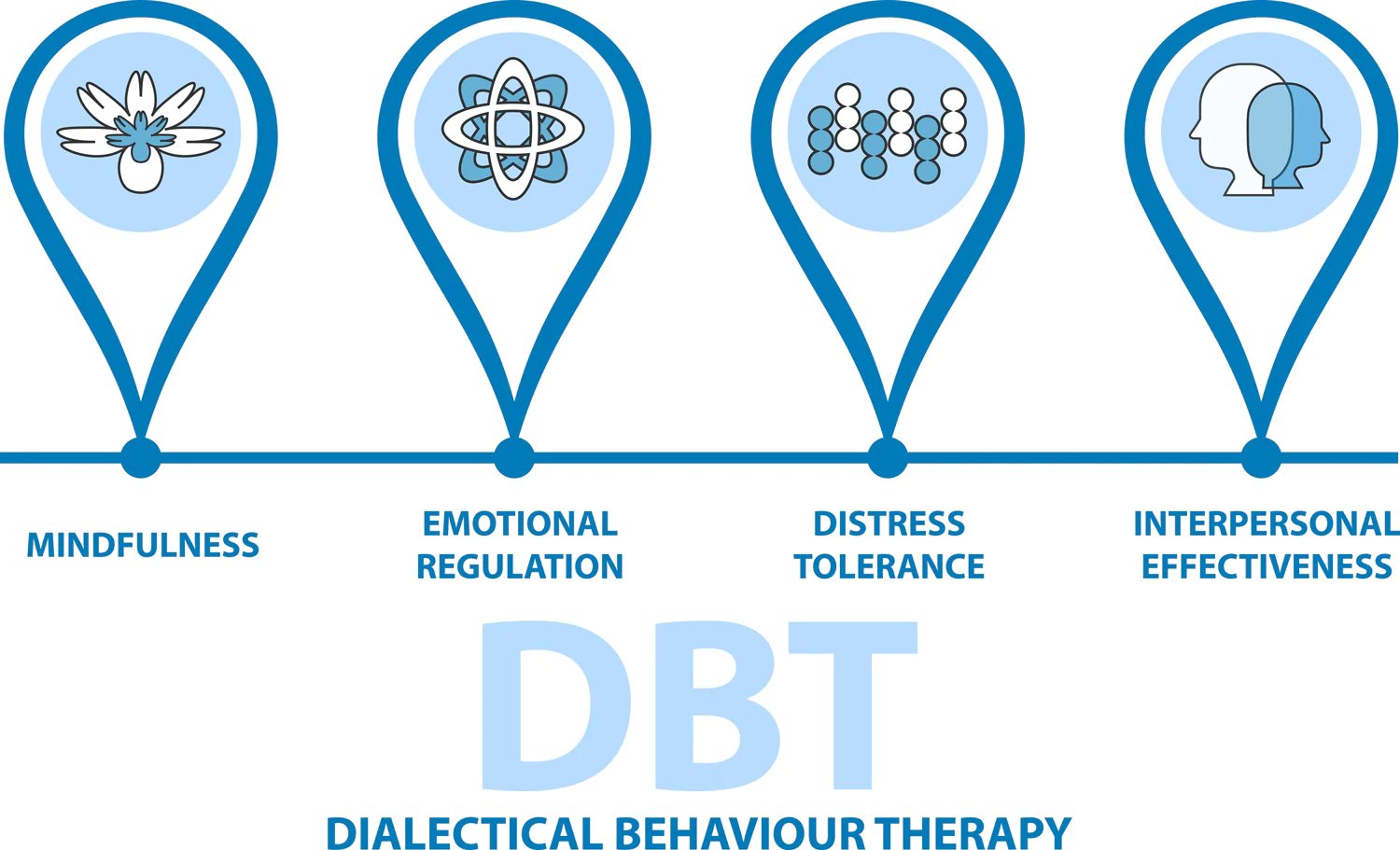What are the principles of dialectical behavior therapy?
Unraveling the Core Principles of Dialectical Behavior Therapy with Mindful Lotus Therapy, FL
Dialectical Behavior Therapy (DBT) has evolved as a formidable force in the world of therapeutic techniques. But what underpins its effectiveness? Rooted in its core principles, DBT addresses emotional dysregulation with finesse. Let's dive into these principles with guidance from Mindful Lotus Therapy, FL.
1. Dialectics
At the heart of DBT lies the concept of 'dialectics', which revolves around balancing opposites. The primary dialectical stance in DBT is the balance between acceptance and change.
Key Takeaways:
Emphasizes that everything is interconnected.
Change is inevitable, and opposing forces can coexist.
Encourages clients to find a middle ground rather than thinking in black and white terms.
2. Mindfulness
Inspired by Buddhist meditative practices, mindfulness in DBT promotes awareness of the present moment, teaching clients to experience their feelings without judgment.
Key Takeaways:
Promotes the idea of "wise mind" – the balance between emotional and logical mind.
Assists clients in recognizing and labeling their emotions.
Encourages grounding exercises to help clients stay present.
3. Distress Tolerance
Instead of avoiding distressing situations or emotions, DBT trains individuals to endure and accept them. This acceptance doesn't mean approval but rather acknowledgment.
Key Takeaways:
Provides techniques like self-soothing and distraction to manage distress.
Teaches clients that some pain is a natural part of life and is bearable.
Emphasizes the importance of not reacting impulsively to distressing feelings.
4. Emotion Regulation
Given that emotional dysregulation is a hallmark of disorders DBT typically treats, this principle equips clients with tools to manage and change intense emotions.
Key Takeaways:
Helps clients understand the roots of their emotions.
Provides strategies to reduce emotional vulnerability.
Offers techniques like opposite action, where clients act contrary to their emotional urges.
5. Interpersonal Effectiveness
This principle guides clients in managing their relationships in a way that maintains self-respect and fosters healthy interactions.
Key Takeaways:
Equips clients with assertiveness skills.
Trains individuals to set healthy boundaries.
Teaches strategies for making relationship-enhancing requests and saying no.
Decoding DBT with Professional Guidance
Understanding these principles provides insights into the therapeutic journey DBT offers. However, the principles truly come alive in therapy sessions tailored to individual needs. At Mindful Lotus Therapy, FL, our experts bring these principles to fruition, ensuring every client experiences the transformative power of DBT.
Those keen to delve deeper into the intricacies of DBT and other therapeutic modalities can explore comprehensive resources from institutions like American Psychiatric Association and PsychCentral.
Embarking on the journey of therapy can be transformative. With trusted guidance, like the one you'll find at Mindful Lotus Therapy, FL, this journey promises growth, understanding, and healing. Reach out to us today to start your transformative journey.

